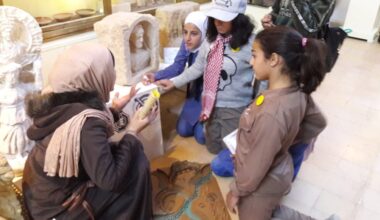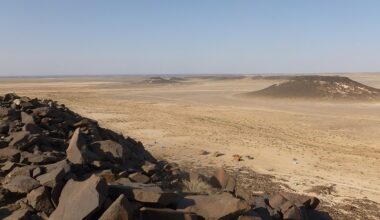Project summary
This project investigates the socio-economic impact of imperial policies on the Phoenician heartland during the Iron Age through the analysis of Phoenician amphorae, a transport container known to be of great economic importance.
Project details
Location: Lebanon
Year(s): 2018
Project director(s): Kamal Badreshany (Durham University)
Lead institutions and funding:
- CBRL
Project description
This project investigates the socio-economic impact of imperial policies on the Phoenician heartland during the Iron Age through the analysis of Phoenician amphorae, a transport container known to be of great economic importance. A dataset of more than 4,000 vessels were studied using the combination of a traditional typological investigation with a focused archaeometric approach including a new quantitative method for the morphometric analysis of amphorae, thin-section petrography, geochemistry and organic residue analyses. The study was aimed at gaining a more detailed understanding of the organisation of the Phoenician economy. The results of the research demonstrate that the production of the Iron Age amphorae from Tell el-Burak in Lebanon was highly organised and was undertaken by long-lived, sustained and centralised modes. The results also provide new insights into socio-economic strategies adopted in the Phoenician homeland during the proliferation of the world’s first great imperial powers. A follow-on project incorporating amphorae data from four additional Phoenician sites of Sidon, Sarepta, Beirut, and Jiye promises to significantly improve our understanding of the adoption of economic strategies during this period on the Lebanese coast.
Project bibliography
Badreshany, Kamal. 2020. Instruments of imperialism? What transport jars reveal about economy and administration in the earliest world empires. Bulletin of the Council for British Research in the Levant 2018-2019, p 18.
Published:26 November 2021















